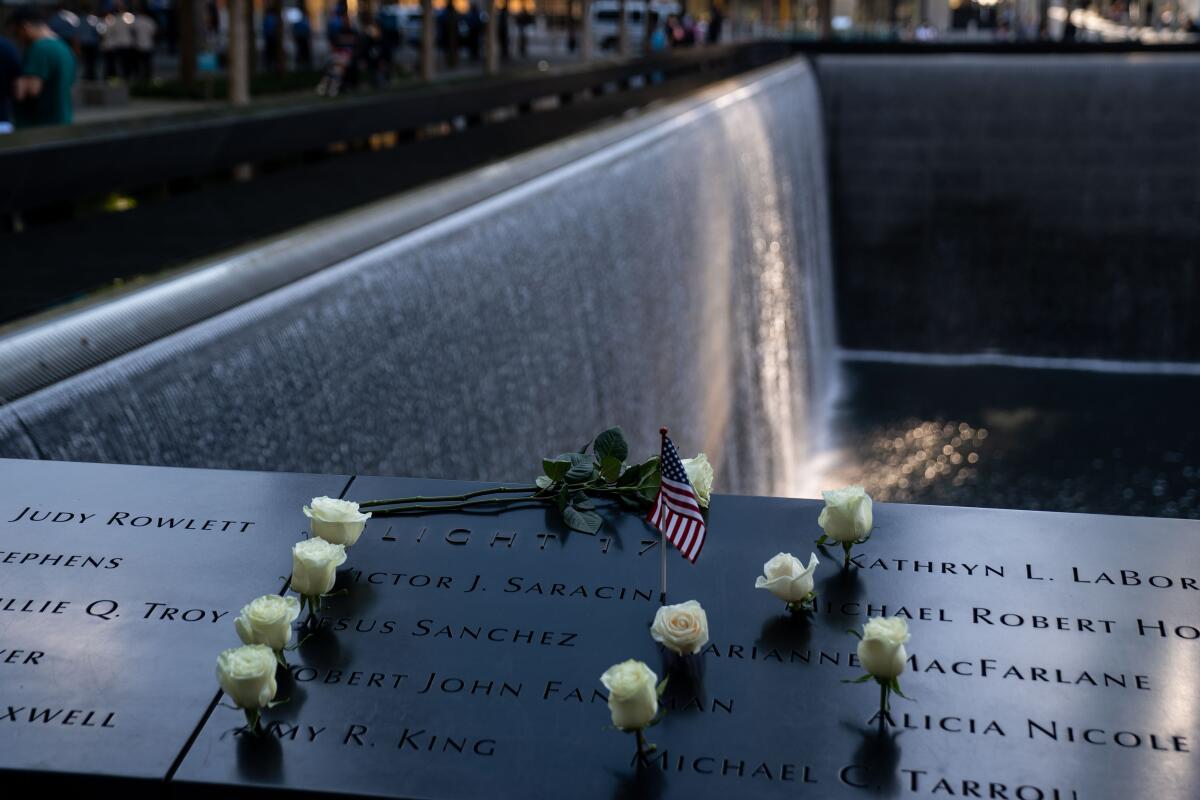Letters to the Editor: ‘You must be related to the suicide bombers’: Being a Muslim in America after 9/11

- Share via
To the editor: When the 9/11 attacks happened, I was in my first week teaching middle school in Irvine, where the student population was more diverse than the teaching population. My seventh-graders and I watched in horror as the images of planes crashing into the Twin Towers were shown on television. When the Pentagon was hit in Washington, I knew it was a declaration of war on America. (“Muslim youth in America: A generation shadowed by the aftermath of 9/11,” Sept. 3)
A co-worker at the school asked, “Is your family OK?”
I retorted, “The attack was perpetrated by Middle Easterners and I am a Pakistani American, so why would my family not be OK?”
Sept. 11, 2001, shattered not only the nation’s security but also the lives of Muslims in the United States.
At a job interview in the same school district, a principal inquired about my teaching career in Pakistan: “So, was the school you taught in Pakistan a madrasa, like the ones they show on CNN?”
I knew the biggest challenge for me as a Muslim public school teacher was to dispel the misconceptions about my heritage and beliefs.
Fast-forward to 2005 and the July 7 bombings in London. The following August, a globally minded, educated teacher approached me on the first day of school and said this: “You’re a sleeper agent. It’s people like you who blend in and send their kids to become engineers at UCLA, and then they will blow themselves up.”
He went on: “You must be related to the suicide bombers in London. They are Khans, and so is your family.”
My family has been in public service for six generations in India and then in Pakistan. My father taught me to counter stereotypes and combat bigotry. When I got beat up as a high school student in London in the 1980s for being smart and looking different, my father sent me right back to school and told me to report it and fight them with “the pen.” He did not allow me to be a victim.
So it was hard not to take 9/11 personally. Now, the Muslim community is stronger, more resilient and advocating not only for Muslims, but all Americans.
Anila Ali, Irvine
The writer is president of the American Muslim and Multifaith Women’s Empowerment Council.
More to Read
A cure for the common opinion
Get thought-provoking perspectives with our weekly newsletter.
You may occasionally receive promotional content from the Los Angeles Times.









